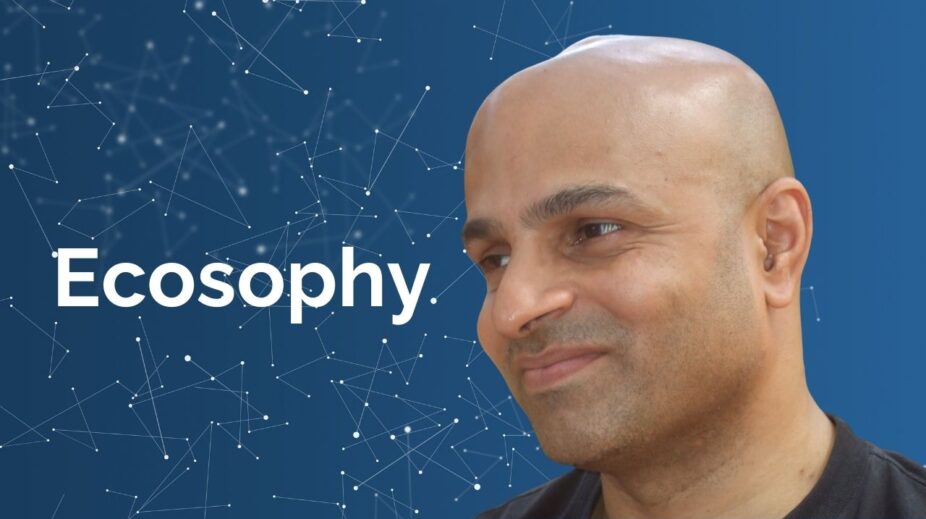The Truth About The Earth Runs Deeper Than Science
Aparna Sridhar | 17 October, 2023
In a fast-paced world racing to compete in modernity and progress, Aseem Shrivastava, Delhi-based writer, teacher and ecological thinker, advocates a different approach to that of most economists. Shrivastava did both his bachelors and masters degree in economics; by the time he had completed his doctorate in environmental economics from the University of Massachusetts, Amherst, he was deeply disillusioned with the subject. Finding that he could not overlook the flaws in the system, the abstruse mathematics hiding the fact that the fragile theoretical model of economics did not work, he turned to philosophy for answers.
Reading the works of thinkers from Nietzsche to Kierkegaard, Shrivastava found clarity that economics had not provided him. Having co-authored the book Churning the Earth with Ashish Kothari, he taught at several Indian universities, where he could finally make the switch to philosophy, proceeding to teach the subject at the Nordic College, Norway. He had found a way of thinking that he has since passionately advocated—ecosophy. Raimon Panikkar, the philosopher-theologian whose books Cultural Disarmament and The Rhythm of Being introduced Shrivastava to the concept, defines ecosophy as the wisdom of the earth.
Shrivastava emphasises the difference between ecosophy and other discussions of nature and the environment. Ecology is a branch of science and environmentalism has always considered nature as an ‘afterthought’ to the economy. Ecosophy, however, is a perspective, a truly ecologically sensitive approach. Furthermore, ecosophy critiques ‘modernity’, which is a deeply colonial and West-centric outlook, Shrivastava argues, just as development is, which environmentalism and ecology do not question.
A key concept that Shrivastava is concerned with while living in the anthropocene, is technocracy, the power of technology and those who wield it. Society is conditioned to accept it passively, sometimes as a necessary evil, when one thinks of what Max Weber called ‘disenchantment with the world’. Science has become secular, eliminating the experience, and even the idea of a soul—Even if there is one, it is restricted to humans. Shrivastava says that the misconceptions spread to interpretations of Nietzsche’s work as that of an atheist. Nietzsche was raised as a Lutheran Protestant, being the son of a pastor. But he rejected this system of belief even before the time he reached his twenties, says Shrivastava—why else would he speak of keeping faith with the earth, if the earth was the inanimate Cartesian gathering of matter? Even the greatest scientific minds, from Bohr to Heisenberg, talk about consciousness and the soul—especially Schrodinger, who expressed the need to draw from Oriental philosophy in dealing with science.
Whether we like it or not, Shrivastava reminds us, we are constantly in dialogue with everything around us. The importance lies in aspiring to a fruitful dialogue with nature, rather than a ruthless ascent of humanity to self-destructive, hubristic power. Nature will be merciless in turn, but within, it also carries a harmonious, intricately woven peace.
In a course of reconnecting with nature, staying in a remote village, participants described their feelings of never having lived so much before, says Shrivastava. They fetched water, collected firewood, cooked on the firewood, living the rural life and being occupied without being ‘busy’. People need to learn to pause and understand, reconsider nature-man relationships, rather than the impulsive urge to plough through nature whenever it seems to be in their way. He recommends reading authors such as Pannikar and Rabindranath Tagore, as well as Wendel Berry’s essays and especially his book The Unsettling of America, and Hannan Arendt’s book The Human Condition.
Shrivastava is also wary of ‘solutionism’, which powers the current economic model—a vicious cycle of creating problems and creating solutions to them—and supplanting one system with another. Rather, the answers must come through living through the perspective of ecosophy, through creation and love and inquiry. The idea of sustainability itself is flawed, Shrivastava says—the current system is in no way sustainable, and technocrats are simply trying to find a way to continue to profit while retaining this system. Moreover, countries of the West place the blame on ‘developing’ countries, while in reality they do not want these countries to succeed in switching to traditional systems because they would not only lose markets but the ‘developed’ countries will also be exposed as climate criminals, just as they have in the past.
What then are these traditional systems? India’s deep heritage and the ancient cultural respect for nature, reverence for the soul that inheres in nature, is already rooted in the ideas of ecosophy. In this video interview, Shrivastava talks about his latest workshop in Bangalore, his vision as Advisor of the Center for Embodied Knowledge and about the role of institutions and individuals in caring for the earth.
Video Excerpt of the Interview

